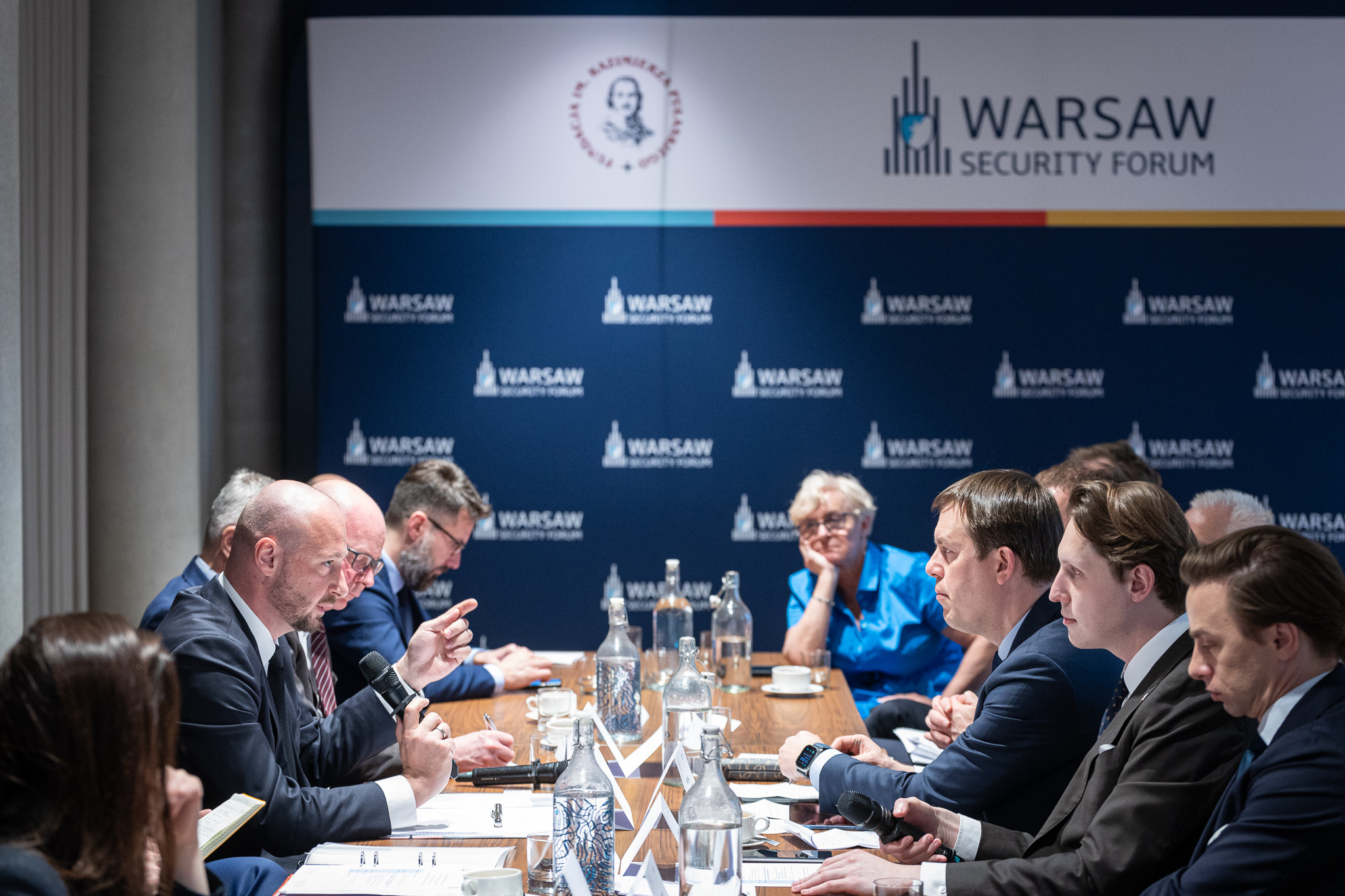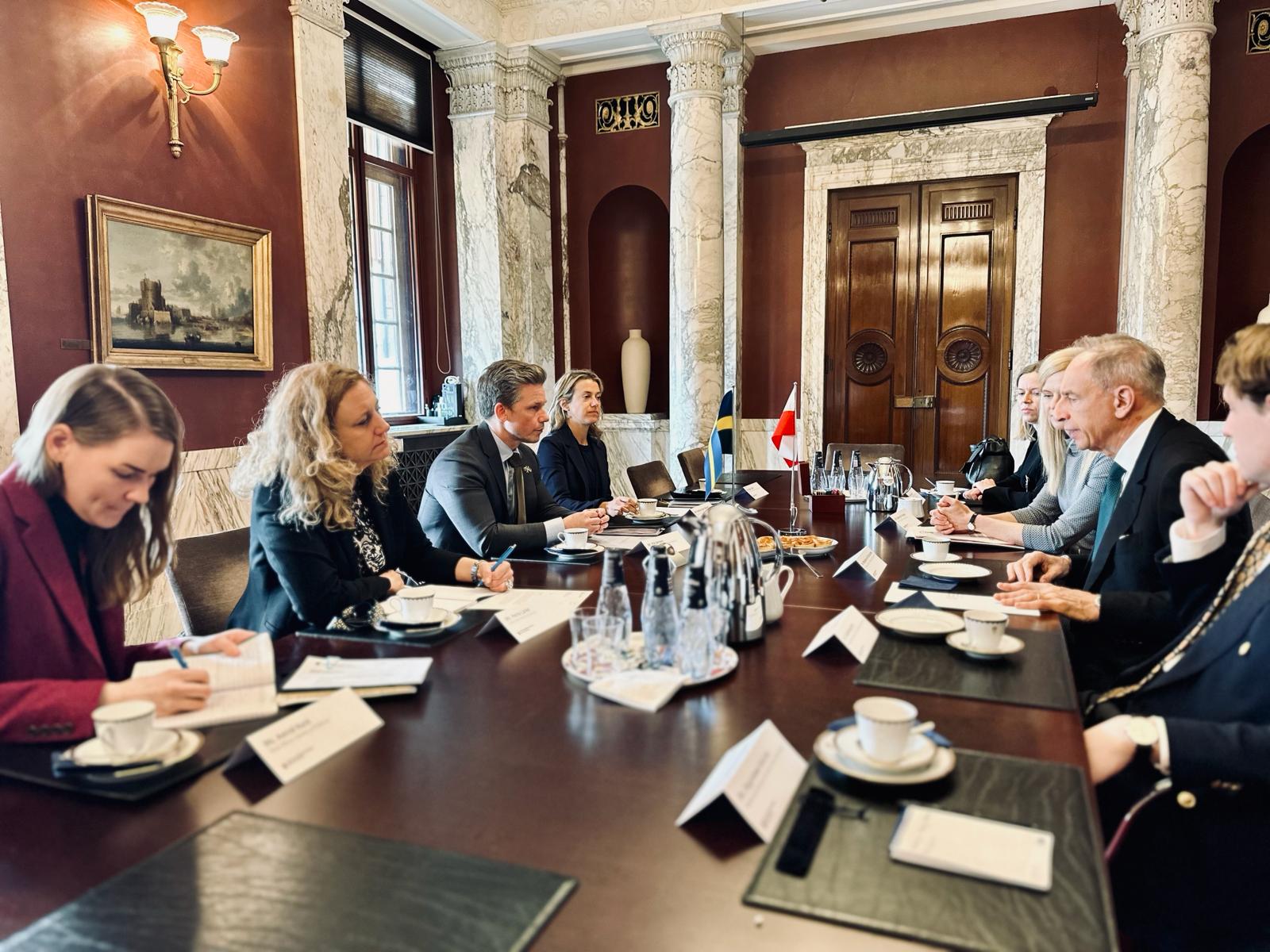WSF2019 | BREAKOUT SESSION: Deadlock – Iran, USA and the Middle East
This session was organized in partnership with the Polish Institute of International Affairs and was aimed, on one hand, at determining whether the Iranian Crisis is at a deadlock, and, on the other, searching for solutions to this geopolitical issue.
The panelists of the session were: Mr. Alberto Fernandez – President of the Middle East Broadcasting Networks; Mr. Daniel Fried – Distinguished Fellow at the Future Europe Initiative and Eurasia Center, US Assistant Secretary of State for European and Eurasian Affairs (2005 – 2009); Ms. Ellie Geranmayeh – Deputy Director at the Middle East and North Africa Programme of the European Council on Foreign Relations. The discussion was moderated by Ms. Patrycja Sasnal, Head of Research at the Polish Institute of International Affairs. The session took place on October 2nd, 2019 in Warsaw.
The panelists first assessed the current situation in Iran. Ellie Geranmayeh observed that Iran and the United States “are still busy accumulating leverage points, and neither side seems to want to use the position of strength […] to make the first step to de-escalate,” and argued that the first move needs to come from the United States. Daniel Fried agreed with that summary and evaluated the capacity of the Trump administration to address the issue. Alberto Fernandez, on the contrary, said that the US must keep maximum pressure on the Iranian regime and criticized the Joint Comprehensive Plan of Action (JCPOA), also known as the Iran Nuclear Deal. Ellie Geranmayeh and Daniel Fried criticized the American sanctions and the withdrawal of the United States from the JCPOA. To conclude the session, the panelists answered questions from the audience about transatlantic relations, the role of France and Russia in the stabilization of the region, as well as about other local actors such as Israel and Saudi Arabia.
SHARE THIS STORY ANYWHERE YOU LIKE
SHARE THIS STORY ANYWHERE
WSF Weimar Triangle Parliamentary Delegation Visit to Washington D.C.
On 15-17 of April 2024, the Casimir Pulaski Foundation and the Warsaw Security Forum have dispatched an advocacy mission to Washington D.C. to bolster support for the passage of the critical U.S. $60 billion aid package to Ukraine. The senior leadership of the Casimir Pulaski Foundation was joined by three members of national parliaments from Germany, France and Poland.
Poland-Sweden Strategic Dialogue
The Head of the National Security Bureau and the Swedish National Security Adviser met in Warsaw: Poland-Sweden Strategic Dialogue Highlights Shared Commitment to Regional Security.
High-level delegation to Stockholm
Last week Warsaw Security Forum organized a high-level delegation to Stockholm, to hold ministerial-level meetings. Their aim was to discuss the security situation in the region and the preparations for this year's edition of the #WSF2024.



